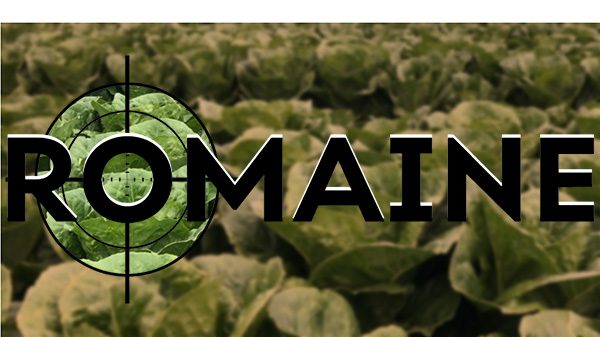Canada is not in a trusting mood these days. Not, at any rate, when it comes to romaine lettuce.
Earlier this month, the Canadian government issued an order that every shipment of romaine lettuce imported from California’s Salinas Valley (comprising Monterey, San Benito, Santa Cruz, and Santa Clara counties) must have been tested for E. coli.
The Canadian Food Inspection Agency announced, “Effective October 7, 2020, the CFIA will require importers to either provide proof that romaine lettuce destined for import into Canada does not originate from counties in the Salinas Valley, or provide an official certificate of analysis from an accredited laboratory confirming that the lettuce has below-detectable levels of E. coli.

“Romaine is associated with elevated food safety risks,” the announcement adds. “In Canada, there have been seven documented outbreaks of illnesses associated with romaine lettuce, and 16 recalls of romaine lettuce or products containing romaine lettuce due to E. coli O157:H7 from 2010 to 2019.”
A question-and-answer sheet issued by LGMA and other lettuce organizations said, “The requirements apply to all U.S. shipments of romaine lettuce or salad mixes containing romaine lettuce, sold in bags, in bulk, or combined with other food items, in a fresh state.”
The restrictions only apply to romaine from the four counties mentioned above, although romaine from other regions will have to have a declaration of origin. Otherwise it will be subject to the same requirements as the Monterey product. These provisions will remain in place until the end of the year.
When asked to comment, Scott Horsfall, chief executive officer for the California Leafy Greens Marketing Agreement, BB #:210653 an industry-established regulatory agency, referred me to an October 7 statement.
“I don’t believe we have anything to add at this point,” Horsfall said.
The LGMA response insists that the new Canadian regulations are not the result of any current outbreak.
It goes on to say:
“• The measures required in these new restrictions for post-harvest testing are not achievable on an industry-wide basis in the timeframe provided.”
“• The laboratory capacity to perform the prescribed product testing doesn’t exist, either for the number of samples required or for the sampling methodology.
“• Additional storage, shipping and staffing required to implement the product testing methodology do not currently exist within the supply chain.”
In addition, LGMA published this article in September indicating the actions the industry has already taken to improve romaine safety.
Bluntly, the October 7 LGMA statement says, “Product testing has not proven to be a reliable indicator of product safety.”
This seems to be saying that romaine safety cannot be guaranteed by current testing methods, which is not the kind of impression that the industry probably wants to leave.
To sum up: the Canadian authorities are saying, “We don’t want your romaine unless you prove it’s safe.”
The industry appears to be responding, “We can’t.”
The October 7 announcement states the rather obvious truth that these new provisions are likely prevent “the sale of most romaine from California to the Canadian marketplace.”
Evidently the California lettuce industry is saying that it simply cannot guarantee that its romaine is free of E. coli. Apart from the trouble this is causing in Canada, it is not likely to inspire American consumer confidence.
Trade disputes and regulatory issues aside, I would guess that the future of the romaine industry is going to lie with the first producer who can truthfully put “Guaranteed E. coli-free” on its product.
Anyone up for the challenge?



